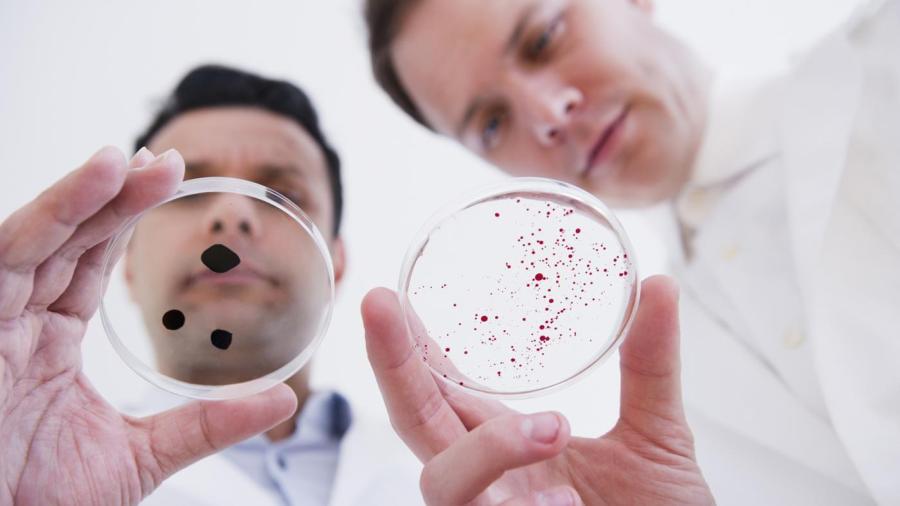What Is the Difference Between a Protozoa and a Bacteria?

Bacteria and protozoa are very distantly related, with bacteria classified as prokaryotes and protists as eukaryotes. This means that protozoa are more closely related to humans than either is to bacteria. The two organisms are structurally distinct. Bacterial cells lack a nucleus, and protozoa contain organelles, such as mitochondria.
Bacteria are generally smaller than protozoa, which frequently feed on bacteria. All protozoa “eat” by enveloping their prey within small pockets called vacuoles, while bacteria can absorb nutrients through their cell walls. Bacteria almost always reproduce via simple binary fission. While some protozoa also use this method, some split into more than two offspring, and some reproduce sexually.





